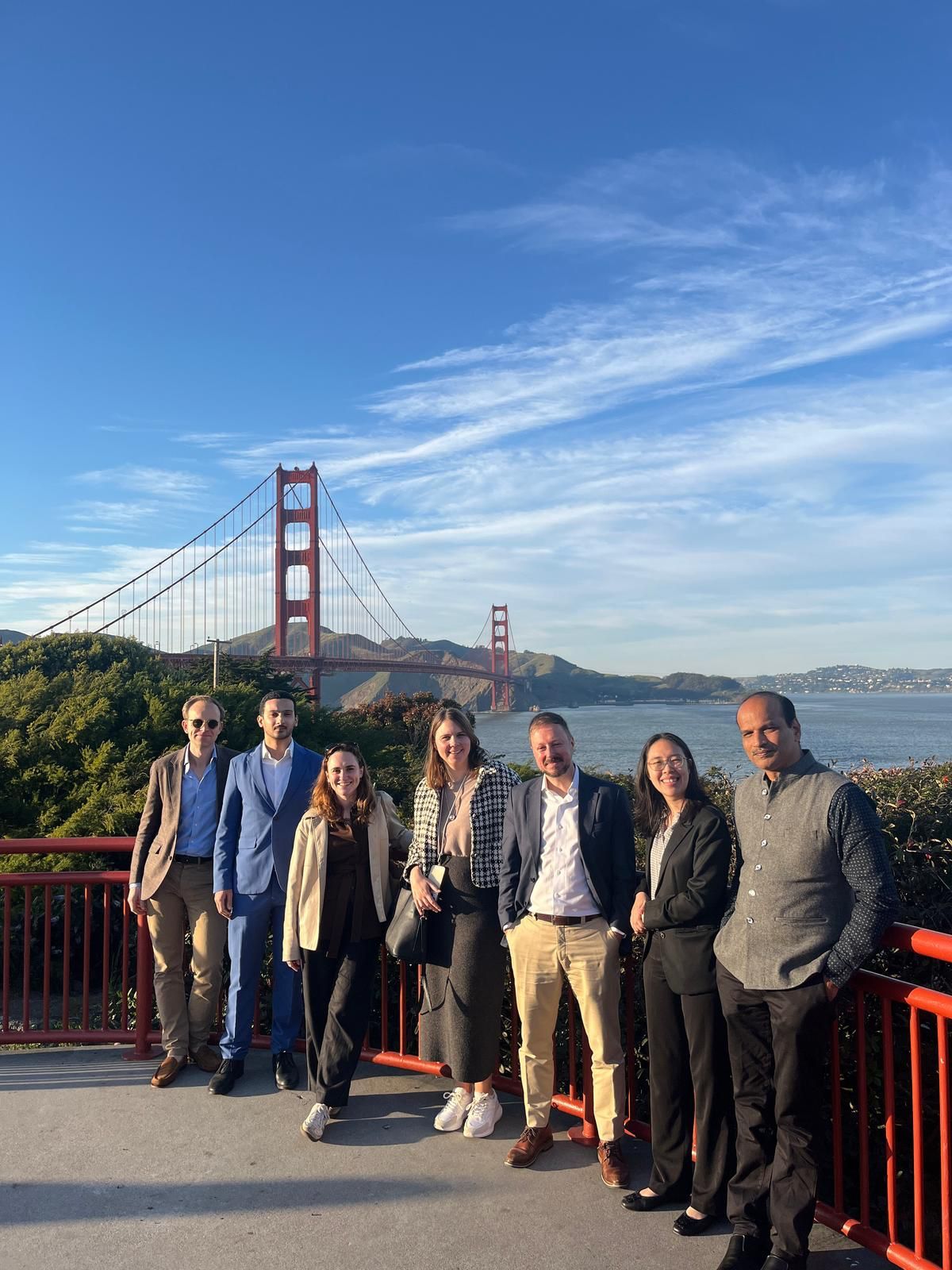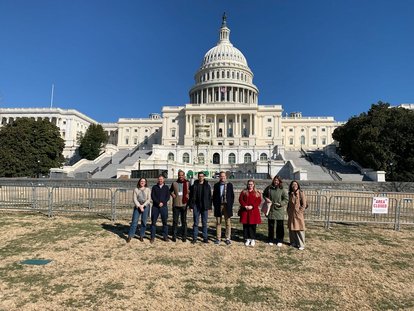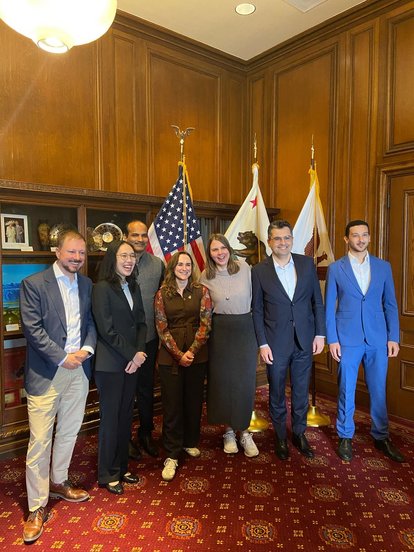Digital Transformation
Decoding the New Course of AI: Insights from an International Delegation in the U.S.

After years of global alignment around prioritizing the responsible use of AI above all other goals, the United States abruptly shifted direction, beginning with the elimination of key executive orders during the early days of the Trump Administration. The country’s new approach was formally outlined in the executive order titled “Removing Barriers to American Leadership in Artificial Intelligence.” The U.S. now aims to pursue “global dominance in AI” to promote human development, economic competitiveness, and national security (Casa Blanca, 2025).
This disruption of the global consensus became even more apparent at the Paris AI Action Summit in early February, where the United States and the United Kingdom refused to sign the Declaration on Inclusive and Sustainable Artificial Intelligence for People and the Planet. The document called for the development of open, inclusive, transparent, ethical, safe, and trustworthy AI systems, guided by international frameworks. In response to the decision, JD Vance stated, “We believe overregulating the AI sector could kill a transformative industry. We consider that AI must remain free from ideological bias, and that American AI will not be co-opted into becoming a tool for authoritarian censorship” (Hallam, 2025).
It was in this shifting political context that the World Order and Globalization Hub of the Friedrich Naumann Foundation organized a delegation trip to Washington, D.C., and San Francisco, seeking to foster understanding and build expertise. The delegation brought together seven entrepreneurs, parliamentarians, and think-tank members with AI expertise from around the world—Belgium, Brazil, India, Mexico, Thailand, Tunisia, and Turkey. Over the course of a week, participants engaged in dialogues with leaders across the U.S. AI ecosystem, from government and industry to civil society and academia.
The delegation in D.C

Optimism for AI
What first stood out to the delegation—and came as the greatest surprise—was the calm with which U.S. leaders were navigating a situation perceived internationally as utter chaos. Some activities were paused while federal priorities became clearer, creating some uncertainty around the continuity of previous work. Several individuals expressed confidence that the Trump Administration would soon offer more clarity regarding the country’s AI future.
Despite changes in national AI policy, there are reasons to remain optimistic about the responsible future of AI in the United States. First, members of the House of Representatives affirmed that lawmakers from both the Democratic and Republican parties remain interested in the issue. The House Homeland Security Committee’s Subcommittee on Cybersecurity and Infrastructure Protection anticipates that there will not be less legislation, but that it will be less prescriptive. Second, although consensus on how to move forward is still lacking, the Bipartisan Policy Center noted that certain issues continue to bring both parties together, such as AI applications for the public good and protecting minors from AI-related risks. Senator Martin Heinrich’s office (New Mexico) shared that there is mutual interest in topics such as AI workforce training tools, intellectual property, and the use of AI for military purposes. Bipartisan legislative efforts are also underway, covering issues like privacy, IP, and deepfake pornography. Third, the Wilson Center highlighted the capabilities of key individuals in Trump’s AI team, particularly Michael Kratos, Presidential Advisor on Science and Technology, and Lynne Parker, Executive Director of the President’s Council of Advisors on Science and Technology and Deputy Director of the White House Office of Science and Technology Policy.
The delegation also visited San Francisco

Challenges for the ethical use of AI
Now, setting aside optimism, it is also necessary to address the challenges in promoting the responsible use of AI in the United States. One key issue is the current administration’s belief that regulation and innovation are mutually exclusive. However, as emphasized by members of the Wilson Center, regulation can actually drive innovation, using the example of seatbelts enabling cars to become faster. Another challenge is that, while there is consensus on broad goals—such as ensuring that AI serves the public good—significant disagreement remains both between and within political parties. For instance, when asked about the least consensual area between Democrats and Republicans, a representative from Senator Heinrich’s office pointed to pre-deployment requirements for AI systems and their scope. Most Democrats believe controls should be in place before a system is released to the public. Finally, the greatest barrier to federal AI regulation in the U.S. is the lack of an updated national privacy law. That said, the data usage practices of the Department of Government Efficiency (DOGE) are helping to drive a potential update to the U.S. Federal Privacy Act of 1974 (Oremus & Jiménez, 2025).
The good news is that various state governments are stepping up to ensure responsible AI use in the absence of federal action. Last year, California passed 18 AI-related bills, according to the Office of the Mayor of San Francisco. One such bill requires the administration to register the AI systems it uses, including information on the service provider, the data, and how the system interacts with communities and individuals. The public sector is also contributing to this effort, with a significant number of Silicon Valley startups exploring how to build solutions that support responsible AI systems—often with the goal of being acquired by larger tech companies.
Despite changes in the federal AI policy landscape in the U.S., this trip confirmed that individuals across all sectors are committed to the responsible use and impact of AI. More importantly, this experience underscores the unparalleled value of direct exchanges between experts from different countries. At a time of global transformation surrounding AI, this initiative by the Friedrich Naumann Foundation allowed the group of experts to go beyond media narratives and gain first-hand insight into a complex reality. The diversity of perspectives and experiences shared throughout the week represents the kind of global cooperation needed to address the challenges and seize the opportunities that AI presents.
Claudia del Pozo is CEO and Founder of EON Institute, a think tank that promotes the ethical use of AI.
